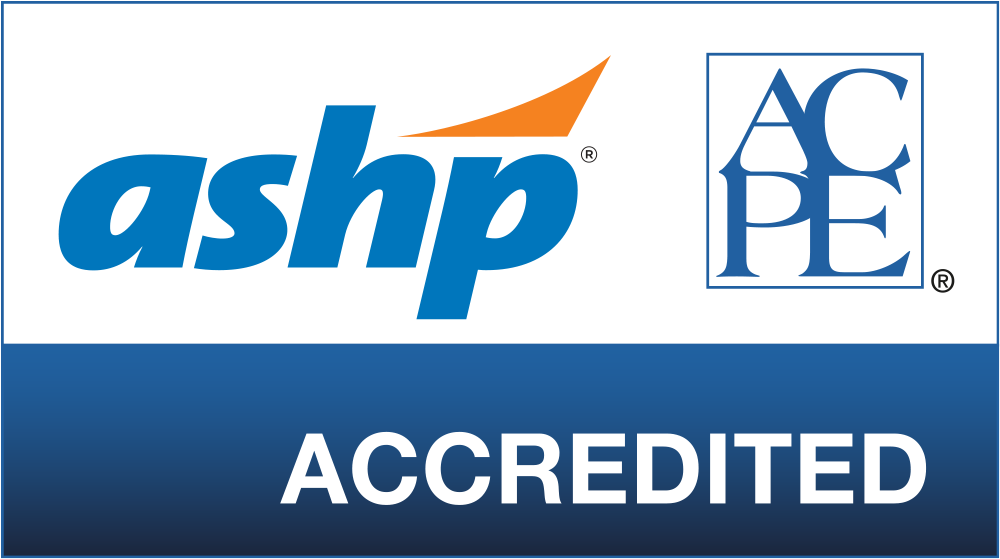ACP’s online sequence of courses contain 404 contact hours leading to a Pharmacy Technician certificate.



100% Online Lecture, Simulation, Active Learning and lab
130 Contact Hours of Hands-On Experience
Pharmacy Technician Certification Board (PTCB) exam ready
CPHT Program
Certified Pharmacy Technician
Appalachian College of Pharmacy invites you to join a growing field in health care with our 6 month certificate leading to a Certified Pharmacy Technician (CPhT). In addition to building your skills in general pharmacology and medical terminology, the curriculum provides 130 hours of real-world, hands-on experience.
Purpose
Provide students with advanced theory and laboratory experience required for employment in acute care and retail pharmacies. Prepare students to take national certification exam(s). Provide employers with competent, entry-level pharmacy technicians. Provide students with exposure to the latest technology and devices being used.
By partnering with PioneerRx Pharmacy Software, our program allows students to learn in a real-world environment using the most installed software for independent pharmacies. Students enhance their clinical and functional skills by training in a pharmacy system that is innovative, robust, and feature-rich.
Employment Outlook
Job opportunities for Pharmacy Technicians include retail pharmacies, acute care facilities, long term care facilities, and pharmaceutical companies. Check out the latest employment statistics from the U.S. Bureau of Labor for Pharmacy Technicians.
Online Program Delivery
The Certified Pharmacy Technician program is delivered primarily online and can be completed anywhere within the United States. While classroom attendance is not required, your instructor may require synchronous weekly sessions.
Canvas is the cloud-based learning management system used by Appalachian College of Pharmacy (ACP) to deliver the CPhT program. ACP requires that all students use a secure login and passcode to take online courses.
Program Overview
- 100% online lecture, simulation, active learning, and lab
- 404 total program contact hours
- 224 hours of lecture
- 50 hours of virtual lab/simulation
- 130 hours of hands-on experience
- Program length of 6 months (26 weeks) or less
- Program cost: $3,300
Program Accreditation & Pass Rates

Appalachian College of Pharmacy’s CPhT program is approved by the Virginia Board of Pharmacy and is designed to meet the requirements leading to entry level certification in the Commonwealth of Virginia. This program is accredited by the American Society of Health-System Pharmacists (ASHP) and the Accreditation Council on Pharmacy Education (ACPE).
Pharmacy Technician Certification Exam Pass Rate for our first cohort who completed the program on 2/28/25 is 67% which is equal to the National Average of 67%.
CPhT Courses
Through this six month technician training program, managed by the Appalachian College of Pharmacy, you will study the duties of a pharmacy technician and prepare to take the Pharmacy Technician Certification Board Exam (PTCB). Our program provides 224 contact hours of lectures, simulation and active learning, 50 hours of virtual lab, plus 130 hours of experiential rotation.
An introductory course into the practice of pharmacy, including the history of pharmacy, technician roles in various practice settings, and pharmacy ethics and professionalism. Students will learn about the advancing and emerging opportunities for technicians now and in the future.
This course will familiarize you with various body systems including structure, function, diseases, disorders, and treatments. Students will learn drug delivery systems, drug administration routes, drug classifications, and commonly used medications for various organ system disorders.
This course teaches how law affects healthcare practitioners, the origin of laws that affect medical professionals, and how to mitigate risk regarding malpractice, crimes, and torts. The legal basis for the confidentiality of healthcare information, and the laws regulating healthcare information collected and maintained by government agencies will also be covered.
A continuation of Pharmacology, Drug Class, and Body Systems, Part 1. You’ll continue to learn about various body systems, drug delivery systems, drug administration routes, drug classifications, and commonly used medications for various organ system disorders. You’ll also learn about specific classes of antibiotics, antifungals, antivirals, and dietary supplements for preventative health. Medications are listed throughout this unit by their generic names, with brand names provided in parentheses.
This course introduces the pharmacy technician student to basic math, and pharmaceutical calculations used in pharmacy practice.
This course introduces students to sterile and nonsterile compounding. A strong emphasis is placed on proper aseptic technique and compliance with USP 797 and 800. Compounding practices and equipment are also discussed.
This course introduces pharmacy operations. Students will discuss the differences between pharmacy settings, examine the business applications of pharmacy, and review drug information resources, including how and when to use them. Students will also learn how to handle medication safely, and the steps involved in error prevention.
In this course, you’ll learn about the pharmacy reimbursement process. You’ll study third party healthcare plans, reimbursement systems, and claims processing to see how medical services are billed in healthcare institutions. You’ll also learn about various health insurance programs, how they’re funded, and which types of patients they cover.
This course is designed to facilitate your mastery of computer and practical skills needed to perform various pharmacy technician-related responsibilities in community pharmacy practices. The course entails a series of lab activities that walk you through entering and filling prescription orders.
This course is designed to strengthen your working knowledge of the concepts essential for pharmacy technician practice and serves as a review to prepare you to take the Pharmacy Technician Certification Exam.
Program Learning Outcomes
Upon successful completion, students will be able to:
- Understand and describe hospital and institutional practice and formulary guidelines.
- Describe proper procedures for repackaging and dispensing medications. Describe the functions associated with drug information centers, specialty services such as intravenous admixture and total parenteral nutrition, satellite pharmacies, and clinical pharmacists working in an institution. Maintain a floor stock.
- Describe and apply Standard (universal) Procedures, aseptic technique, sterilization, contamination, and the germ theory of disease. Identify parenterals, appropriate means of disposing hazardous agents, and procedures to follow in the event of exposure. Identify an automated dispensing device.
- Describe the characteristics of intravenous solutions including solubility, osmolality, osmolarity, and pH. Describe equipment and supplies necessary for preparing intravenous parenterals. Identify the components of an intravenous administration set, syringe, needle, vial, and ampule. Perform conversions between Fahrenheit and Celsius and the reverse, calculate molecular weight, specific gravity, and intravenous administration rates.
- Express understanding of the extent and effect of medical errors on patient health and safety. Describe how and to what extent medication errors contribute to medical errors. Identify, define, and determine how to reduce types of medical errors. Describe root cause analysis of medication errors. Identify error reporting systems.
- Understand the importance of human relations, communications, ethics, attitude, and appearance. Describe policies and procedures. Understand the importance of not dispensing medical or pharmaceutical advice.
- Describe and abide by the confidentiality laws in healthcare. Practice within the scope of duties of a pharmacy technician. Maintain professionalism at all times.
- Create a resume that stands out in the job market and increases employability. Compare and contrast registration and licensure, and national certifications, and the benefits of each. Identify recertification requirements.
Proctored Assignments & Exams
Distance education courses at ACP can also require proctored assignments and examinations. A proctored environment is provided on campus and virtually by the Director of Student Success. Students completing proctored assignments or exams are required to verify their identity by presenting their college ID.
Distance Learning Privacy Procedures
ACP issues each student a student identification number at the time of initial registration. The student identification number become the unique identifier for all students throughout their academic and professional career at ACP.
A user ID is required for both students and faculty to access ACP’s online class environment through the CPhT online intranet portal, NHA portal and Science interactive portal.
The college utilizes the Canvas learning management system which is a secure environment for faculty members to post assignments and exams while ensuring the privacy of individual student’s assessments and grades. Each course listed in the student information system for enrollment in a semester is assigned a course space in Canvas. Faculty gain access to this course space when their employee ID is assigned to the course by the college. Each student registered in a class will be connected to the course roster within the student information system and identified to both the instructor and the Canvas course space by their individual student identification number.
All distance learning faculty and students enter their secure login and password into Canvas to gain access to the learning environment. The combination of user ID and password identifies faculty and students to the system on each subsequent course visit.
· All students and faculty are responsibility for the security of their personal passwords.
· Student data within Canvas are inaccessible to other students and outside intruders.
· Faculty data within Canvas are inaccessible to students and outside intruders.

Ready to take the next step?
